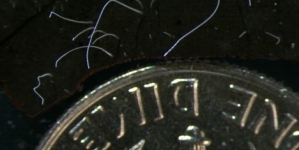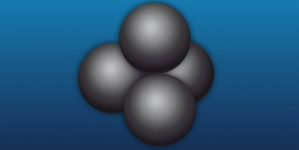-
WASHINGTON: India Now Second-Largest Source Country For New Citizens In US- Report - 8 hours ago
-
LONDON: Indian-Origin Teen In UK Gets “Life-Changing” Cancer Treatment - April 25, 2024
-
SILICON VALLEY: All About Pavan Davuluri, New Head Of Microsoft Windows - April 25, 2024
-
LONDON: UK’s India Gate To Commemorate Role Of Indian Soldiers From World Wars - April 24, 2024
-
HARARE: Shri Bramha Kumar appointed as the next Ambassador of India to the Republic of Zimbabwe - April 23, 2024
-
LONDON: Indian-Origin Principal Wins UK Legal Challenge Over School Prayer Ban - April 23, 2024
-
TORONTO: Indian-Origin Doctor Needs ₹ 2 Crore For Legal Fees. Elon Musk Responds - April 22, 2024
-
KINSHASA: India-Democratic Republic of Congo Foreign Office Consultations - April 21, 2024
-
LONDON: UK Court Allows Sale Of Nirav Modi’s Luxury London Apartment - April 21, 2024
-
TEHRAN: Travel advisory for Iran and Israel - April 20, 2024
BERLIN: Scientists discover new compound for male contraceptive pill
BERLIN: A new research by the scientists
at The Lundquist Institute spells out an innovative strategy that has led to
the discovery of a natural compound as a safe, effective and reversible male
contraceptive agent in pre-clinical animal models.
A new
research by the scientists at The Lundquist Institute spells out an innovative
strategy that has led to the discovery of a natural compound as a safe,
effective and reversible male contraceptive agent in pre-clinical animal
models.
The
findings were published in the journal Nature Communications.
Despite
tremendous efforts over the past decades, the progress in developing
non-hormonal male contraceptives has been very limited.
The
compound is triptonide, which can be either purified from a Chinese herb called
Tripterygium Wilfordii Hook F, or produced through chemical synthesis. Single
daily oral doses of triptonide induce altered sperm having minimal or no
forward motility with close to 100% penetrance and consequently male
infertility in 3-4 and 5-6 weeks.
Once the
treatment is stopped, the males become fertile again in ~4-6 weeks, and can
produce healthy offspring. No discernable toxic effects were detected in either
short- or long-term triptonide treatment. All of their data suggest that
triptonide is a highly promising non-hormonal male contraceptive agent for men
because it appears to meet all of the criteria for a viable contraceptive drug
candidate, including bioavailability, efficacy, reversibility and safety.
A battery
of biochemical analyses suggest that triptonide targets one of the last steps
during sperm assembly, leading to the production of altered sperm without
vigorous motility required for fertilization.
“Thanks
to decades of basic research, which inspired us to develop the idea that a
compound that targets a protein critical for the last several steps of sperm
assembly would lead to the production of nonfunctional sperm without causing
severe depletion of testicular cells,” said Dr. Yan.
“We
are very excited that the new idea worked and that this compound appears to be
an ideal male contraceptive. Our results using non-injurious studies on lower
primates suggest triptonide will be an effective treatment for human males as
well. Hopefully, we will be able to start human clinical trials soon to make
the non-hormonal male contraceptive a reality.”
“Dr.
Yan’s discovery represents a major leap forward in the field,” said Drs.
Christina Wang and Ronald Swerdloff, who are TLI co-Principal Investigators
helping lead NIH-supported advanced clinical trials on hormone-based birth
control approaches.
“The
more contraceptive methods available, the better, as we will want a family of
pharmaceutical products to safely and effectively meet the family planning
needs of men and couples at different stages of their reproductive lives, with
differing ethnic, cultural and religious backgrounds and economic means,”
emphasized Wang and Swerdloff.
























